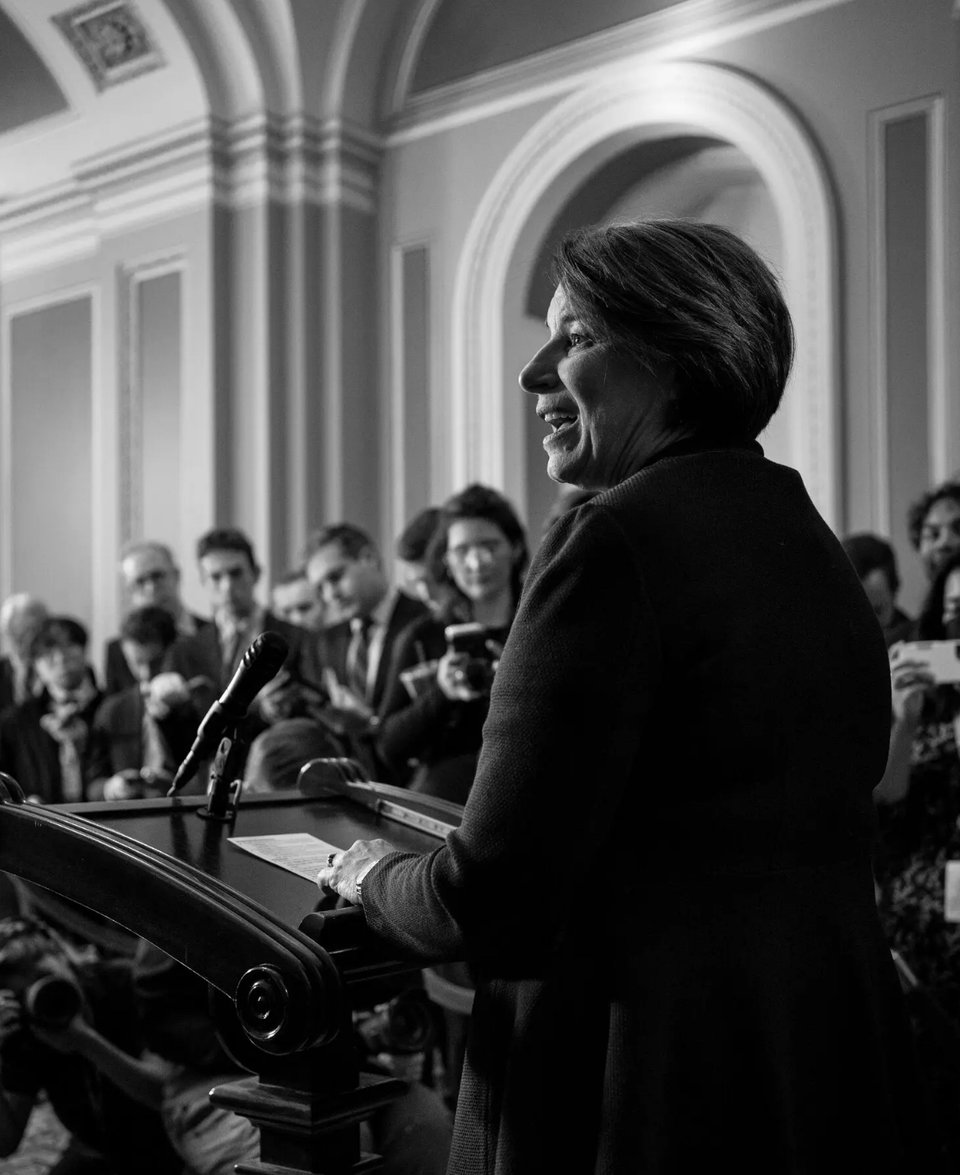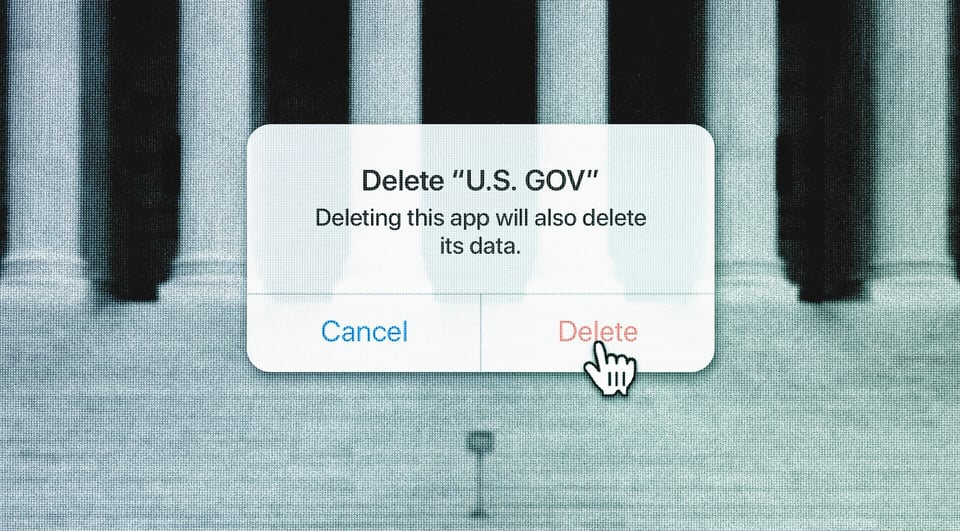Wednesday, February 5, 2025. Annette’s News Roundup.
A Big Victory over the Proud Boys.
A Black Church is in charge.
Trump has the power to grant pardons to criminals but not to end this judgment against an entity known as the Proud Boys.
Proud Boys Lose Control of Their Name to a Black Church They Vandalized

Courts have ruled that the Proud Boys committed a terrorist act when they attacked a DC Black Church and burned a Black Lives Matter banner it was flying in December 2020.
A judge awarded the trademarked name and symbols to a Washington church to help satisfy a $2.8 million judgment against the far-right group.
The Proud Boys no longer have control over their own name.
Under a ruling by a Washington judge on Monday, the infamous far-right group was stripped of control over the trademark “Proud Boys” and was barred from selling any merchandise with either its name or its symbols without the consent of a Black church in Washington that its members vandalized. In June 2023, the church won a $2.8 million default judgment against the Proud Boys after the organization’s former leader, Enrique Tarrio, and several of his subordinates attacked it in a night of violence after a pro-Trump rally in December 2020.
The ruling by the judge, Tanya M. Jones Bosier of the Superior Court of the District of Columbia, effectively means that Proud Boys chapters across the country can no longer legally use their own name or the group’s traditional symbols without the permission of the church that was attacked, the Metropolitan African Methodist Episcopal Church.
The ruling also clears the way for the church to try to seize any money that the Proud Boys might make by selling merchandise like hats or T-shirts emblazoned with their name or with any of their familiar logos, including a black and yellow laurel wreath.
In a lengthy statement, Mr. Tarrio said the church should have its nonprofit status revoked and Judge Bosier should be impeached. “Their actions are a betrayal of justice,” he wrote, adding, “I hold in contempt any motions, judgments and orders issued against me.”
The initial judgment against the Proud Boys determined that Mr. Tarrio and other members of the group had climbed over a fence surrounding the church, which is just blocks from the White House, and burned a Black Lives Matter banner it was flying. The episode took place after a violent clash between supporters and critics of President Trump.
The church called the Proud Boys’ actions “acts of terror” in its lawsuit and said they had been meant “to intimidate the church and silence its support for racial justice.” A judge agreed, calling the Proud Boys’ conduct “hateful and overtly racist.”
When the Proud Boys failed to turn over any money, lawyers for the church sought to satisfy the judgment by seizing control of the trademarked name and by enjoining the group from “selling, transferring, disposing of or licensing” any merchandise using the words “Proud Boys” or any of the organization’s symbols.
The ruling was handed down as the Proud Boys were riding high after Mr. Trump, in one of his first official acts in his return to the White House, included Mr. Tarrio and several of his lieutenants in his sweeping act of clemency to all of the nearly 1,600 people prosecuted in connection with the attack on the Capitol on Jan. 6, 2021.
Mr. Tarrio, who was serving a 22-year prison term on charges of seditious conspiracy, received a full and unconditional pardon from Mr. Trump. His four co-defendants had their own prison terms commuted to time served.
The banner-burning episode had a dramatic effect on the events of Jan. 6. It led to Mr. Tarrio’s arrest on vandalism charges as he returned to Washington on Jan. 4, 2021. As part of the case brought against him, he was kicked out of the city and was in Baltimore when his subordinates took part in the storming of the Capitol.
On the night the banner was burned, another Proud Boys leader, Jeremy Bertino, was stabbed on the street during a clash with leftist counterprotesters.
One lingering effect of that episode was that it turned the Proud Boys against the police after years of having troublingly close relationships with officers across the country. Another was that Mr. Bertino eventually became a government witness and testified against his compatriots at the trial of Mr. Tarrio and his co-defendants. (New York Times).
Do you spend time complaining about Democratic Leaders and why they don’t do more?
Spotlight on Senator Amy Klobuchar, part of Democratic Leadership. She offers her views of Trump and Democratic policies and activities. Oh.
Opinion | The Truth About Democrats, According to Amy Klobuchar - The New York Times

Let’s skip the happy talk: Democrats are in a dark place. It’s not merely that Donald Trump has rolled back into Washington with an everything-everywhere-all-at-once approach to grabbing power. The new president is buoyed by eager-to-please Republican majorities in both chambers of Congress and a #Resistance movement that feels played out.
The American people, meanwhile, remain in a surly mood with the blue team. A new Quinnipiac University poll shows the Democratic Party with its highest unfavorability rating (57 percent), and the Republican Party with its highest favorability rating (43 percent), since the organization began asking the question in 2008.
To claw their way out of this pit, the Democrats need to do some serious rebuilding and rebranding. But how?
Senator Amy Klobuchar has thoughts — so many, in fact, that when we spoke on Thursday, she was practically breathless trying to share them all. They are well worth a listen. Ms. Klobuchar, a Minnesota moderate, knows how to win in the heartland, including in rural territory not especially friendly to Democrats. In her re-election race last November, she outperformed her party’s presidential candidate by more than 11 points. Her secret, as she explained it, has something tangentially to do with … bedbugs.
In December, Ms. Klobuchar was elevated to be the chair of her caucus’s Steering and Policy Committee, making her the No. 3 Democrat in the Senate. From this key leadership post, part of her mandate is to help reshape her team’s policy priorities.
Two days before the Democratic National Committee was meeting to elect a new chair to help lead it out of the wilderness, Ms. Klobuchar hopped on the phone with me to talk about some of the big questions facing her party: how it lost its way, what it needs to do to rebuild public trust and how Democratic lawmakers should handle the reconstituted and re-energized Trump presidency. Our conversation has been edited for length and clarity.
Michelle Cottle: You sit on the Judiciary Committee, and we are talking during a break in the committee’s confirmation hearing for Kash Patel to become the new head of the F.B.I. This is one of President Trump’s more provocative picks. As a member of the minority party, how do you approach these controversial nominees? Realistically, with your questioning, what are you looking to accomplish?
Amy Klobuchar: Sometimes these hearings are just to get some facts out there. But oftentimes you are able to ask the nominee about what their plans are for a department and really hold them accountable for what they’ve said. I’ve seen that time and time again, and that actually can help to get nominees to do their jobs and follow through on the mission of the agencies. I’m not sure that’s gonna happen here.
Then you have situations where there is a chance that the Republicans will not all go lock step. It’s very important to make the point that: Is this really what you want as Republicans? Do you really want someone who, in the case of Kash Patel, has been hawking Covid vaccine reversals, who has said that every election was rigged by our government in 2016 and 2020, who said we should shut down the F.B.I. headquarters and turn it into a museum, who has been criticized by a former Republican attorney general, who they respect very much, that he didn’t have the experience for the job? They have to think long and hard. And I’m not simply talking about the people on the committee, who seem dug in on the other side. There may be other senators who are not.
We’re only a couple of weeks into the Trump administration, and I think it’s fair to say it’s been a lot already. He’s taking a shock-and-awe approach.
I look at it this way: Chaos up. Corruption up. And, sadly, the cost of eggs is way up. No matter how many tech bros you have at the inauguration, none of that helps the people who weren’t in that room. Those are the people that he told he was going to work to bring down housing costs, to create more housing, to do more on child care, to bring down health care costs, and he kept telling us how beautiful it would be. Well, all of this — and maybe it’s done for a distraction — but all of this chaos takes us away from that mission.
So how do Democrats respond? What should the strategy be when you’ve got this fire hose coming at you?
Well, first of all, it is very clear that, if there is a middle of all of this hot mess of division, Americans want us to work together when we can and find common ground. We have said repeatedly — our leaders, individual senators — that we are ready to do that. So that’s No. 1.
No. 2 is, when they start violating the law and firing inspectors general without following the law, when they start illegally cutting off funding for home heating and other things that people need to live, we are going to stand our ground. When an unknown bureaucrat in the Office of Management and Budget issues a two-page memorandum that says, “Hey, we’re just cutting off cancer trials. Sorry,” we stood our ground in a big way. So it is a combination of finding that common ground and standing our ground.
Going even broader, where does the Democratic Party go from here in terms of rebuilding lost public trust so that you’re coming back from this last election?
We’re coming back! And we are in this. That’s the first thing people need to know. And if they ever doubted that, they could see what happened this week when we stood up big time to the Trump administration when they were trying to cut off firefighter grants and kids cancer research.
But. It was clearly a change election. We are aware of that. That happens in other countries, that happens in our own nation, over and over again. But that is not an excuse. That’s descriptive, but it can’t be an excuse. We know we have to change, and that means we have to clearly have the back of the American people.
I would actually pick things that really matter to the American people right now, and that is the cost of housing and child care. There’s some innovative things that we can do either with Republicans or put out there at the state level with our governors — Don’t forget! This isn’t all about Washington. We have some incredibly strong Democratic governors out there — on child care, housing, prescription drugs and health care.
We have to suggest some game-changing ideas as the Republicans fight within their camps, of Elon Musk versus Steve Bannon, we have to be out there holding them accountable, but also putting forth a positive agenda when it comes to health care and everything from, when you look at the mess that we’re in, more prescription drug reductions, taking on these pharma patents and Big Pharma and making clear that we think that we should make health care more affordable with everything from the public option — as opposed to dismantling the Affordable Care Act, making it stronger. I would expand Medicare to 55. I would do more about the denial of insurance claims, all those are things that we need to move forward on business opportunity.
You are a heartland Democrat ——
I am a heartland Democrat! And part of this is respecting our farmers, our ranchers and our small businesses. And that means the work force and making sure we are behind it, big time. And make it clear, as our governors have done and our national leaders have done, that these one- and two-year degrees, making them more affordable. We need people working in those areas.
Export markets, opening them up, not just for the big corporations, but for the small businesses — which is why I’m so concerned about Donald Trump’s across-the-board tariffs that he has proposed.
And then finally, we need to stand up for safety. I’m the lead on the COPS reauthorization, which helps local police departments with funding. We have to do more and make a priority out of retaining and hiring police officers. We have to stand with our firefighters, and that includes those that have been exposed to toxic substances. I lead the bill with Senator Kevin Cramer on that front.
And consumers — you’re going to see a concerted effort to break down things that protect consumers. I am a big believer in competition. I think that helps consumers. It brings down cost. It’s why I opposed that grocery chain merger. It is why I have made a big deal out of these tech monopolies. All of those things I put under the consumer category. So the costs, whether it’s housing, child care, prescription drugs and health care in general.
These are all practical, kitchen table issues that seem like they would appeal to Middle America. So why has the party been struggling with Middle America? Have they not been focusing on these issues enough? What happened?
This was, as I said, a change election. And so, when you are the incumbent party and people want change, you start from a difficult position. So we’re going to have to recapture that. And remember, we are not the status quo anymore — in Washington, at least, the Republicans control all three branches of government. So it is on us to strongly make the case.
Do you think the Resistance is dead — or exhausted?
No! Not at all. I mean, look at the Kennedy hearing and our colleagues and how they took that on — Exhibit A. Look at the Kash Patel hearing that you were just watching — Exhibit B, and that really gets to constitutional issues and law enforcement and our view that you’ve got to have someone competent running the F.B.I.
But then the second sort of grouping of things: Look at what we did when they tried — and they really did try — to stop all outlays of grants and loans to everyone from farmers to small businesses to firefighters. We stood up. Not the Republican Party. The Democratic Party stood up, and that’s what people need to see more of.
There’s been a lot of talk about whether the party needs to push back against parts of the activist base. Joe Biden was criticized for not doing that. What is your thought on that? I mean, you’re a moderate. You’re very bipartisan. Are there things you disagree with the party, or some of its special interest allies, about that concern you?
I believe that we need to focus on these bread-and-butter issues. That doesn’t mean that I disagree with some of the positions of different groups, but I think it’s really important that we pick our battles, just as we did this week, and we keep doing that time and time again. Then voters and the people of this country will be able to see which side we’re on. Because of the changing nature of media and social media and people being exposed to everything and not the same things, it’s really important that we pick our battles.
I have young adult children, and a lot of their friends associate the party now with what is characterized as wokeism, and I’m wondering if this is a failure of communication or perception? Or how do you address that?
I’ll tell you how I address it. I can just go to what I did in Minnesota. So you know I won my race by — I don’t want to get the numbers wrong here — 16 points. I ran ahead of the presidential ticket by 11 points. And I think a lot of that was building trust. You can do that over time, but you can also do that just by the nature of the fact that you show up. So that’s the first thing I’d say. If we just go where it’s comfortable, and not where it’s uncomfortable, we will never win elections like we should on a national basis.
What I’m talking about here is, in my case, I visit all 87 counties every year. In some places, I think I know everyone in the county. One of my favorite visits, I went to an award-winning small business that was a truck, and the name of it was We Kill Bedbugs With Heat. They put mattresses in a truck and turn up the temperature over 150 degrees, and that’s what they did. And they had me go in the truck — but they didn’t turn up the heat! And so I tell that story because you go where it’s uncomfortable, not just where it’s comfortable.
Especially for rural America in the next few years, there are a lot of things heading their way. They have, as you know, traditionally voted for the Republican Party. But when you look at some of the things that are proposed by the Trump administration, which includes health care cuts that could very much decimate rural hospitals and health care, which includes these across-the-board tariffs which will greatly hurt our export market for farmers because of retaliation. And it’s been my experience that our farmers want trade that’s an even playing field for them. They don’t want aid, they want trade that works for America. So that’s the second thing.
The third thing is that people are patriotic on both sides of the aisle. And this is one of the things that bothers me so much about Kash Patel. As someone that has supported numerous Republican nominees for jobs, including for the F.B.I., I have voted for them, I have supported them and I have put my trust in them, even though they may not have been the first person that I would have picked. When you start putting in people who are going in there on a revenge agenda, people that see this as some kind of fidelity to the president as opposed to the American people, I think all kinds of bad things can happen. That’s why I wanted to make the point so clearly at the inauguration that the reason we swear in United States presidents in the Capitol and not at the White House or in some gilded executive office building is because we believe in three equal branches of government, and never has that been more important than now.
You spent more time with Trump during the inauguration than most Dems in your role running the day.
That would be putting it mildly. Yes.
Did he say anything memorable to you?
I would say that, during the time with President Biden in the car and at the White House with the president and the vice president, I wish that that cordial discussion on all sides, I wish that that was reflected in Trump’s speech. Because we discussed — I’m not going to disclose everything we discussed — we discussed a number of issues. We talked a little bit about football. But we talked about the L.A. fires and the need to, with the Olympics coming, how important it is to help them rise from the ashes. And then I spoke with him for a lengthy period of time at lunch and through the day.
So up close you see a more likable side?
I see someone that was willing to listen to my ideas. And I just wish that was reflected in what he said and does as president.
Before I let you go, I have to ask: Is there a world in which you run for president again in 2028?
I am focused on what I am doing now. I have never seen a more important moment for the U.S. Senate and the U.S. Congress. We have a close margin in the House that gives members of both parties — those that do not agree, that will not bend to every wish and whim of the president — the opportunity to show they are fulfilling their constitutional duty. This is our moment in time.
A new candidate for New Jersey.

Breaking : former Navy helicopter pilot Rebecca Bennett will run to unseat Rep. Tom Kean Jr. in 2026, giving Democrats their first candidate – a potentially very formidable one – in NJ’s competitive 7th congressional district.
More another time.
The Hillary Portion of the Roundup.
Hillary Clinton @HillaryClinton
Elon Musk is mounting a blitzkrieg-style administrative coup of the US government, accessing & editing critical systems that manage everything from Social Security payments to private taxpayer info. Join @IndivisibleTeam in DC today to demand a stop to it:

Hillary Clinton @HillaryClinton
·
Many Americans are totally unaware that critical systems people rely on—which run on (and funnel!) taxpayer dollars—are being smashed and grabbed. This article summarizes what's going on. Please share it with friends and family so they help demand action.
The ‘Rapid Unscheduled Disassembly’ of the United States Government
Elon Musk’s bureaucratic coup is under way.
By Charlie Warzel.

Elon Musk is not the president, but it does appear that he—a foreign-born, unelected billionaire who was not confirmed by Congress—is exercising profound influence over the federal government of the United States, seizing control of information, payments systems, and personnel management. It is nothing short of an administrative coup.
As the head of an improvised team within the Trump administration with completely ambiguous power (the Department of Government Efficiency, or DOGE, in reference to a meme about a Shiba Inu), Musk has managed quite a lot in the two weeks since Inauguration Day. He has barged into at least one government building and made plans to end leases or sell some of them (three leases have been terminated so far, according to Stephen Ehikian, the General Services Administration’s acting administrator). He has called in employees from Tesla and the Boring Company to oversee broad workforce cuts, including at the Office of Personnel Management (one of Musk’s appointed advisers, according to Wired, is just 21 years old, while another graduated from high school last year). During this time, OPM staffers, presumably affiliated with DOGE, reportedly set up an “on-premise” email server that may be vulnerable to hacking and able to collect data on government employees—one that a lawsuit brought by two federal workers argues violates the E-Government Act of 2002 (there has not yet been a response to the complaint). Musk’s people have also reportedly gained access to the Treasury’s payments system—used to disburse more than $5 trillion to Americans each year (a national-security risk, according to Senator Ron Wyden, a democrat from Oregon)—as well as computer systems that contain the personal data of millions of civil servants. (They subsequently locked some senior employees out of those systems, according to Reuters.) Musk did not immediately respond to a request for comment.
Over the weekend, the Trump administration put two senior staffers at the U.S. Agency for International Development (USAID) on administrative leave—staffers who, according to CNN, had tried to thwart Musk’s staff’s attempts to access sensitive and classified information. Musk posted on X yesterday that “USAID is a criminal organization. Time for it to die.” USAID staffers were barred from entering the unit’s headquarters today.
This is called “flooding the zone.” Taken in aggregate, these actions are overwhelming. But Musk’s political project with DOGE is actually quite straightforward: The world’s richest man appears to be indiscriminately dismantling the government with an eye toward consolidating power and punishing his political enemies.
Two days before the 2024 election, I wrote that Musk’s chaotic takeover of Twitter was going to be the blueprint for his potential tenure at DOGE. Unfortunately, I was right—he’s running the exact same playbook. But it’s worth keeping in mind that there are two ways of measuring success for Musk’s projects: first, whether the organizations themselves benefit under his leadership, and second, whether Musk himself gets something out of the arrangement. Musk’s stewardship of X has been a financial nightmare. He has alienated advertisers, tanked revenue and user growth, and saddled investment banks with debt from the purchase that they’ll need to sell off. Yet Musk’s own influence and net worth have grown considerably during this time. His fanboys and the MAGA faithful don’t care that X is a flailing business, because Musk did deliver on giving liberals their supposed comeuppance by de-verifying accounts and reinstating banned trolls. He turned the platform into a conspiratorial superfund site, has boosted right-wing accounts and talking points, and helped elect Donald Trump as president. Musk’s purchase is a success in their eyes because he succeeded in turning X into a political weapon.
The same thing is happening right now with DOGE. Musk and his Silicon Valley acolytes are acting on a long-held fantasy of approaching the federal government like a software company and running it like a venture-backed tech start-up during the days of zero-percent interest rates. Here’s the problem: The federal government is not a software company. “The stakes are wildly different,” a former senior Twitter executive told me recently. This person, who requested anonymity because they worked closely with Musk during his takeover and fear retribution, argued that Musk seems incapable of recognizing the limits of his own knowledge. When I asked them to describe Musk’s managerial strategy, they borrowed a term of art from SpaceX’s own rocket mishaps: “This is a rapid unscheduled disassembly of government services.”
The theory that the government is inefficient is not altogether incorrect. I recently spoke with Robert Gordon, formerly the deputy assistant to the president for economic mobility in the Biden administration, to get a sense of how intricate government agencies are and what it would take to reform them. Gordon, who has spent time in the Office of Management and Budget and as the assistant secretary responsible for grants policy at the Department of Health and Human Services, was quick to note that we desperately need to simplify processes within the federal government to allow workers to execute more quickly and develop more agile technology, such as the Direct File product that the IRS recently made to allow Americans to file taxes for free. “No doubt the government could do more here,” he told me. “But it requires incredibly specific approaches, implemented in a thoughtful way. It requires paying enormous attention to detail, not blowing shit up.” Musk and DOGE have instead operated with a “vast carelessness,” Gordon wrote in a Substack post last week. “This government cannot trouble itself to plan for the biggest things, the funds that thousands of organizations use to serve millions of people,” he wrote. “It has swept up civil servants in a vortex of confusion and fear.” Musk wrote today on X that the Treasury team that built Direct File no longer exists. “That group has been deleted,” he said.
Among Gordon’s biggest concerns is that DOGE’s slapdash cuts will remove key links in the bureaucratic chain that make the government function. Even simple-sounding procedures—allocating government funds in a crisis like, say, a pandemic—require coordination among teams of civil servants across multiple government offices. “All of this is done by back-office types,” Gordon told me. “There are so many people in that process, and it matters enormously how good they are.” That this system is inefficient is frustrating, Gordon said, but he worries that the chaos caused by Musk’s efforts will halt any possibility of reform. “If you want to make this system better, you need to create space for civil servants who know what they’re doing to do that work,” he told me. “What’s very likely to happen now because of this pressure is that the most competent people on that chain are at super-high risk of saying, I gave it my best shot; I don’t need this and quit, because they can get better jobs. That’s what I see happening.”
Of course, the so-called tech right does not agree. As the political scientist Henry Farrell wrote this past weekend, “The fact that none of the DOGE people actually understand how government functions is a feature, not a bug. If you understand the workings of the federal bureaucracy, you are almost certainly part of the problem, not the solution.” But this reasoning is not usually compatible with the reality of managing complex organizations. As the former Twitter exec told me, after Musk took over the platform, his people enthusiastically championed ideas that seasoned employees with knowledge of the company had already researched and rejected: “It wasn’t that we hadn’t thought about new ways, say, to do verification or handle bots, but we rejected them on the basis of research and data. There was a huge contrast between the methodical approach and Musk’s rapid-fire whims.”
When Musk barged into Twitter in 2022 as its new CEO, his strategy was “decision making by vibes,” according to the former exec I spoke with. Those vibes were often dictated by the sycophants in Musk’s orbit. The executive described Musk as surprisingly receptive to ideas when presented with facts and data, but said that few in his inner circle questioned or spoke frankly with him: “And so, in the absence of rational decision making, we got the vibes-based, yes-man approach.”
The former executive did point to a meaningful difference between X and DOGE, however: The government is big and complex. This may be an asset during an assault. “Even if you try to take a flamethrower to the government, the destruction won’t be quick. There’ll be legal challenges and congressional fights, and in the months and weeks, it’ll be individuals who keep essential services running,” they said. The government workers who know what they’re doing may still be able to make positive incremental change from within.
It’s a rousing, hopeful notion. But I fear that the focus on the particulars of this unqualified assault on our government is like looking at X’s bottom line, in that it obscures Musk’s real ambitions. What are DOGE’s metrics for success? If X is our guide, health, functionality, and sustainability are incidental and able to be sacrificed. The end game for Musk seems to be just as it was with Twitter: seize a polarized, inefficient institution; fuse his identity with it; and then use it to punish his enemies and reward his friends. DOGE is a moon-shot program to turn the government into Musk’s personal political weapon. (The Atlantic).
My thoughts about the Trump Tariff-Taxes.
Trump, the School-Yard Bully.

Why 25% tax on goods from Mexico and Canada and only 10% on goods from China?
I am not an economist but I know 10% is not as large as 25%. Therefore, I know the threat to China by Trump’s threatened Tariff-Tax is not as large as the threat to Mexico and Canada by the Tariff-Tax he announced against them.
But I also know the 3 Trump Tariff-Taxes on 3 different countries creates the illusion of a powerful attack on other nations’ sovereignty by a man representing the United States of America, now the World’s Bully.
Trump’s initial 25% Tariff-Taxes against Mexico and China rattled international markets but were quickly paused. Tariff-Taxes this large with two of our three largest trading partners could do real damage, and Trump didn’t dare to see the damage come to pass on America’s economy —-
There were almost no concessions because there was nothing to concede.
As Mary Trump reported,
Here’s what Mexico conceded:
10,000 National Guard troops deployed to Mexico’s northern border to combat fentanyl trafficking and illegal immigration.
The U.S. pledged to help Mexico curb weapons trafficking.
And here’s what Canada conceded:
A $1.3 billion border security plan was announced by Prime Minister Justin Trudeau.
Donald agreed to a 30-day pause to explore a broader economic deal.
But this is what Trump reported.
After speaking with Trudeau, Donald posted:
"Canada has agreed to ensure we have a secure northern border and to finally end the deadly scourge of drugs like fentanyl that have been pouring into our country, killing hundreds of thousands of Americans while destroying their families and communities. Canada will implement their $1.3 billion border plan, reinforcing the border with new choppers, technology, and personnel. I have also signed a new intelligence directive on organized crime and fentanyl and will be backing it with $200 million."
Sure, Donald.
Of course, data shows minimal fentanyl smuggling at the northern border, but who needs facts when you can manufacture a crisis? <
In other words, not much happened but the threats themselves.
Now the attacks on Mexico and Canada stand simply as models of potential threats against other nations and nation blocs by the American Bully as well as the possibility that Trump making additional Tariff-Tax threats to frighten Americans as well as well as other nations, as well as the world order.
The 10% Trump Tariff-Tax against China, in either direction - against the American consumer or the Chinese consumer? Eh, not so bad. Trump had reason to believe it wouldn’t create a big, big fuss among China’s leadership, the Central Committee of the Chinese Communist Party. But it would allow Trump further bragging rights seen by Americans and the world (“See me exercise muscle against China.”)
China, however, managed to up him one better. Besides retaliating with a 10% tariff in return, they decided to restrict exports on tungsten and other rare metals used largely in the manufacturing of semi- conductor chips and accelerated an anti-monopoly investigation against Google.
On Monday, China also started an antimonopoly investigation into Nvidia, the American company that dominates the world’s market for the most advanced chips needed for artificial intelligence. (Source. New York Times)
Consumer price rises, especially temporary ones, don’t seem to especially bother Trump and his billionaire cronies, but trade war levies affecting companies’ profits or profit forecasts, especially AI and Silicon Valley Companies, well, Trump, MAGA, Republicans and Investors may become concerned.
Whinny,cowardly Bully.
Call him what he is.
Fear is the Bully’s game. Whether through Tariff- Tax Threats internationally, or ISIS in our cities and towns.
Creating Fear.
Where is our media to analyze this? Where are our economists?
At the present, economists like Larry Summers simply amplify Trump’s message, of how dangerous large tariffs will be for us all, if Trump really means to impose them.
They never even speculate about what Trump’s reckless dabbling in Tariff-Taxes might let loose, such as the Chinese retaliation this week, or new economic alliances which will hurt American companies.
As it is, I and maybe you too, I suspect, have only my speculations. Let me know what you think.